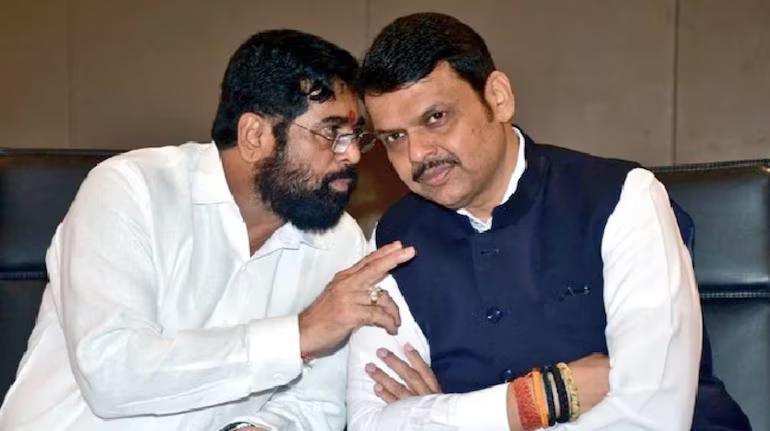
Doesn’t Mean Shinde Loves Gujarat More: Fadnavis on Jai Gujarat Remark
In a surprising turn of events, Maharashtra Chief Minister Devendra Fadnavis has come out in defense of his Deputy CM, Eknath Shinde, over a remark that has sparked controversy. At an event attended by Union Home Minister Amit Shah, Shinde concluded his speech by saying “Jai Hind, Jai Maharashtra, Jai Gujarat”, which has been perceived by many as a sudden display of affection for Gujarat, a neighboring state. While some have criticized Shinde’s remark, Fadnavis has clarified that it doesn’t mean the Deputy CM loves Gujarat more than Maharashtra.
Shinde’s remark has been met with criticism from the opposition, with the Congress party labeling it as “political slavery”. The party has accused Shinde of neglecting the interests of Maharashtra and praising Gujarat instead. However, Fadnavis has dismissed such claims, stating that Shinde’s remark was meant to promote unity and brotherhood among the people of different states.
In an interview, Fadnavis explained that Shinde’s “Jai Gujarat” remark was not meant to imply that he loves Gujarat more than Maharashtra. “Such a parochial thinking doesn’t behove Marathi manoos,” he stated. According to Fadnavis, the remark was aimed at promoting national unity and emphasizing the importance of cooperation among different states.
Shinde’s remark has also been seen as a departure from the traditional Maharashtra-centric approach of the Bharatiya Janata Party (BJP). The BJP has always been associated with a strong sense of regional identity, particularly in Maharashtra, where the party has a significant presence. However, Shinde’s remark has been seen as a sign of a shift in the party’s stance, with some interpreting it as a recognition of Gujarat’s economic and cultural achievements.
The controversy surrounding Shinde’s remark has also raised questions about the role of regional identity in Indian politics. While regional identity has been a potent force in Indian politics, it has also been criticized for creating divisions and promoting parochialism. Shinde’s remark has been seen as a reminder of the need to balance regional identity with national unity and cooperation.
The Congress party, which has been critical of Shinde’s remark, has accused the BJP of trying to erase the unique identity of different states. The party has claimed that the BJP is attempting to impose a uniform culture and identity on the entire country, which is a threat to regional diversity.
However, Fadnavis has rejected these claims, stating that the BJP is committed to promoting and preserving regional identity. “We respect and celebrate our regional identity, but we also recognize the importance of national unity and cooperation,” he said.
In conclusion, Shinde’s “Jai Gujarat” remark has sparked a controversy that has highlighted the complexities of regional identity in Indian politics. While some have criticized the remark as a display of affection for Gujarat, Fadnavis has clarified that it was meant to promote unity and brotherhood among the people of different states.
As the debate continues, it is clear that regional identity remains a potent force in Indian politics. However, it is also important to recognize the need to balance regional identity with national unity and cooperation. By doing so, we can promote a sense of shared identity and purpose among the people of different states, which is essential for the country’s growth and development.






